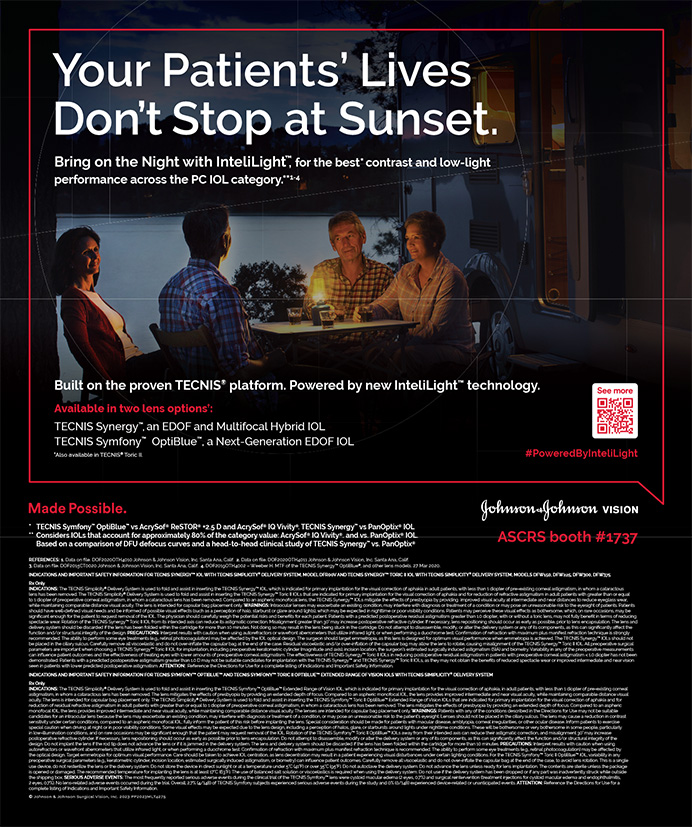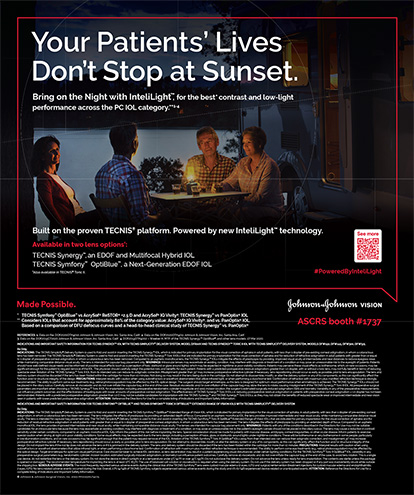On any given day, any of us might unexpectedly face a difficult decision that we would quickly have to make alone. This is what happened on November 8, 2007, to New Orleans waiter Al Castro. During his evening shift at the buffet in Harrah's Casino, he found a billfold containing $8,000 cash but no identification in one of the booths. He guessed that it belonged to one of the two well-dressed customers whom he had served at the booth earlier in the evening.
The wallet belonged to Rhode Island ophthalmologist Thomas McCauley, who was in town to attend the AAO Annual Meeting. Having won money at the casino and wary of the city's reputation for pickpockets, McCauley placed the cash in a separate billfold from his wallet, just in case the latter was lost or stolen. When he discovered that his billfold was missing, he assumed the worst. Imagine his surprise when, upon returning to the buffet area, Castro ran up to him and promptly returned the unmarked wallet with all of the cash. In a telephone interview, Castro said he was "tempted when he saw the stack of bills in the wallet, but 'I put myself in his shoes if I lost that kind of money.'"1
When I spoke to McCauley after the meeting, he explained that, after giving Castro a reward, he told Castro's supervisors about the waiter's remarkable act of honesty. McCauley learned that the 34-year-old waiter had returned to New Orleans after Hurricane Katrina and that he was working full time at Harrah's to support his family, including a wife and 14-month-old infant. He was also studying accounting as a full-time student at the University of Phoenix. McCauley was impressed not only with Castro's integrity but with his work ethic.
There had been so much negative media coverage about crime in New Orleans since Hurricane Katrina but few stories about the many hard-working residents like Castro struggling to make ends meet. McCauley recognized an opportunity to make a statement. Several days later, New Orleans officials presented Castro and McCauley with the keys to the city in a public ceremony during which McCauley rewarded Castro by giving him the $8,000 to help pay for his college tuition.
These events immediately became a national story that brought both individuals far more attention than they expected or wanted. McCauley's small private office was inundated with media requests as well as phone calls from Rhode Island residents and patients who wanted to donate money to his "cause." Several unfamiliar ophthalmologists contacted him as well. It seems that, after the national and local publicity, we ophthalmologists were suddenly the most popular individuals in New Orleans, and we were given VIP treatment by cab drivers and waiters.
What started as a spontaneous decision by an honest waiter begot another act of kindness. The ripple effect of this compelling story about integrity and generosity was equally remarkable. The image of honest and hardworking New Orleans residents suddenly overshadowed that of criminals?something that the Tourism and Convention Bureau's marketing efforts had been unable to accomplish. Donations to New Orleans charities increased. Likewise, McCauley's generous actions did more to enhance the stature of ophthalmologists in the public eye than any of the newsworthy medical advances being reported at the AAO Annual Meeting.
We ophthalmologists are blessed with amazing knowledge, training, and microsurgical skills. Let us not forget, however, the power and influence that come from simple acts of kindness and integrity without requiring such credentials.


